Character Letter to Judge are typically written by friends, family members, colleagues, employers, mentors, or community members who can attest to the individual’s good character and moral standing.
The purpose of this letter is to provide the judge with information about the individual’s character, background, and personal qualities that may be relevant to the legal case.
Related Products:
Key Components of a Character Letter to a Judge:
- Salutation: Begin the letter with a respectful salutation addressing the judge. Use “Your Honor” or “Dear Judge [Last Name].”
- Introduction: Introduce yourself and provide your full name, contact information, and your relationship to the individual facing legal proceedings.
- Introduction of the Individual: Include the full name of the individual whose character you are vouching for, their relationship to you, and a brief description of how you know them.
- Character Assessment
- Specific Examples: Share specific examples, anecdotes, or experiences that illustrate the individual’s character and good deeds.
- Background Information: Provide information about the individual’s background, including their educational achievements, work history, family ties, and community involvement.
- Regret and Responsibility
- Rehabilitation Efforts: Describe any efforts the individual has made toward rehabilitation, personal growth, or addressing the issues that led to the legal proceedings.
- Support System
- Positive Impact
- Conclusion
- Offer Assistance: Express your willingness to support the individual during their legal process or rehabilitation efforts.
- Contact Information: Provide your contact information in case the judge or legal authorities wish to follow up with you for further information or clarification.
Sample Character Letter to Judge Template with Example
It’s important to note that character letters should be honest, respectful, and focused on the individual’s character and potential for positive change.
- Humanizing the Individual
- Mitigating Factors
- Evidence of Support
- Balancing Perspective
- Encouraging Rehabilitation
- Advocacy
They should not attempt to influence the judge’s decision or provide false information. Each letter should be tailored to the specific circumstances of the case and the individual involved.

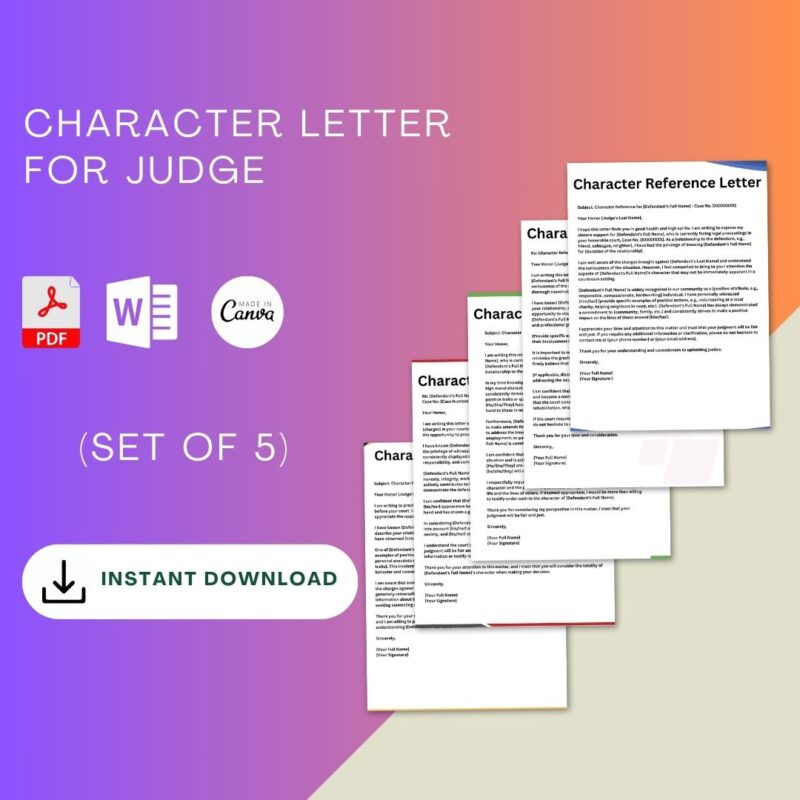

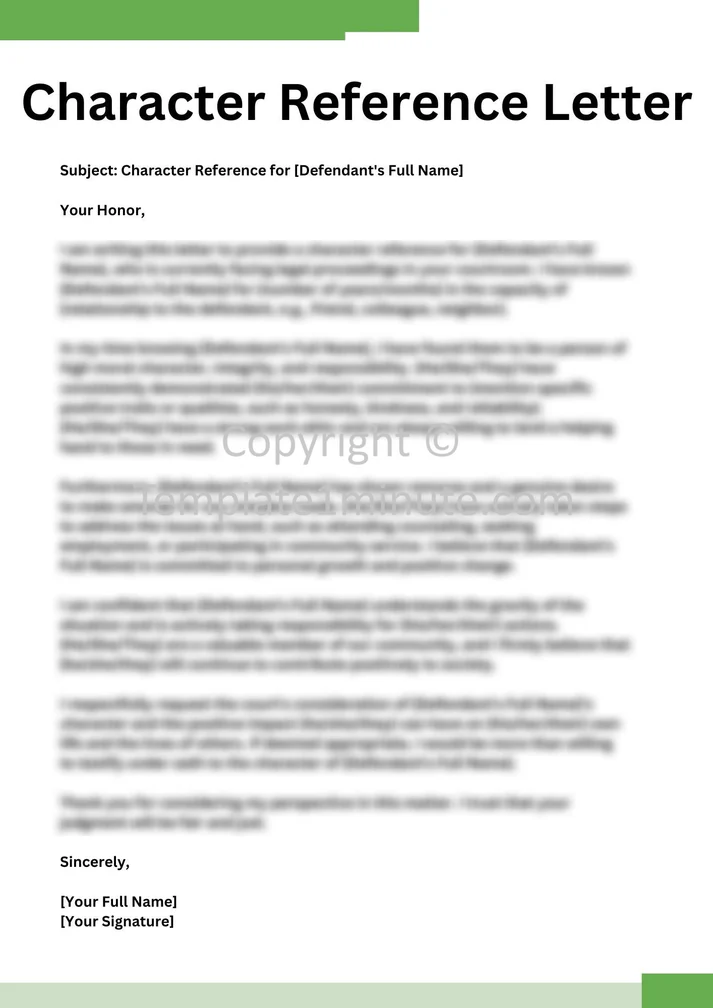
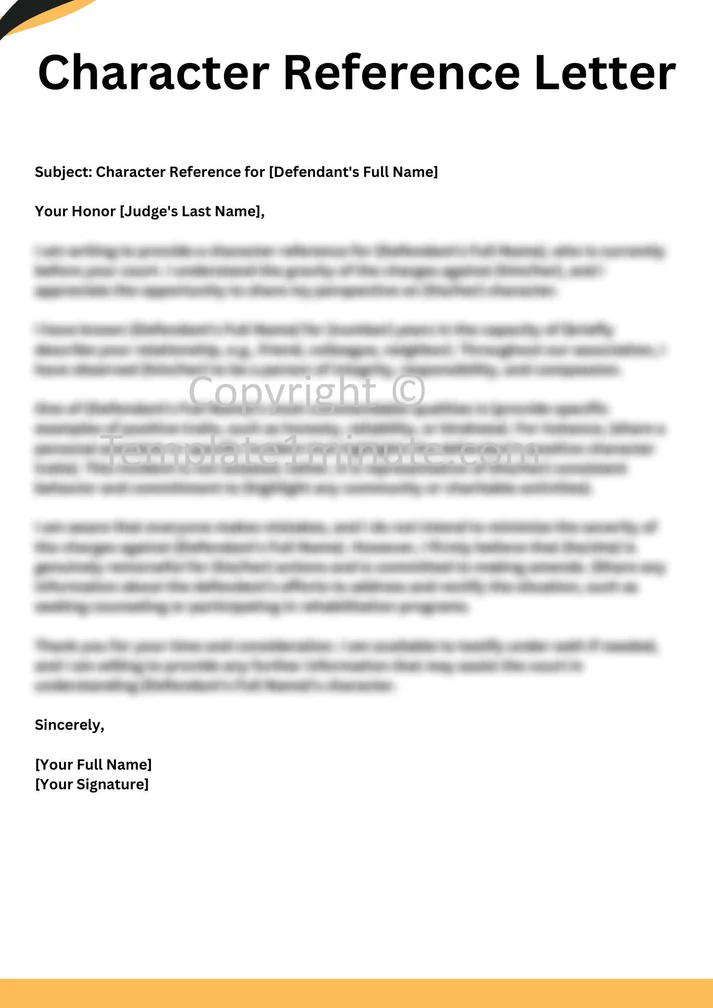
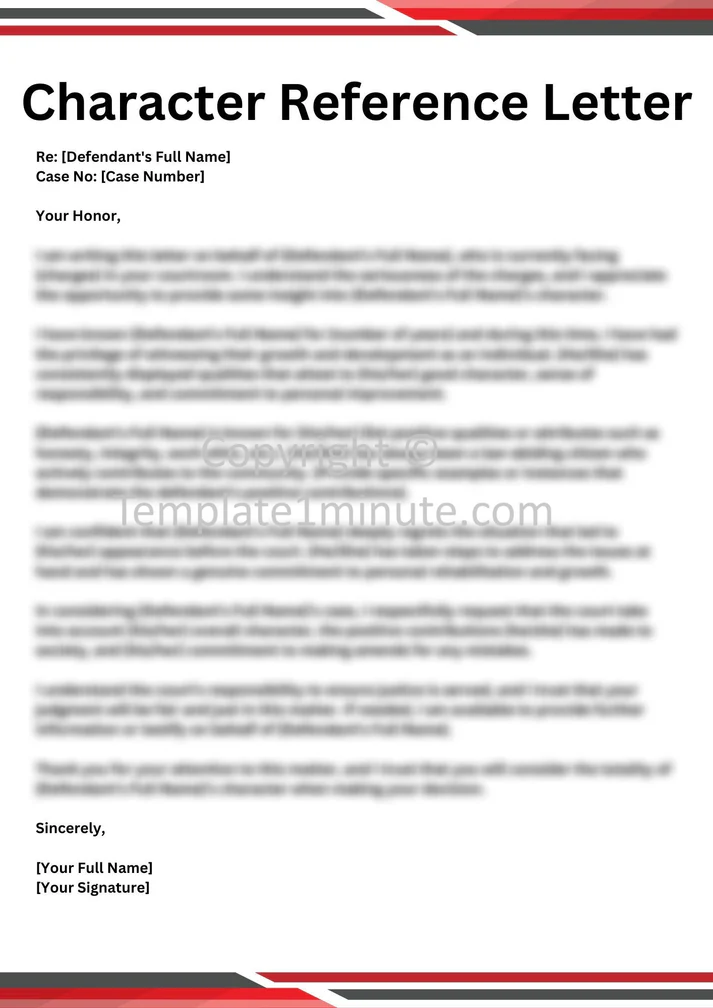


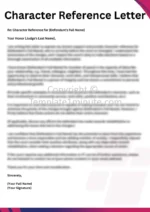
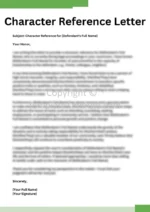
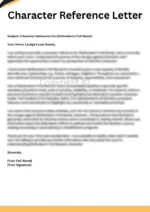

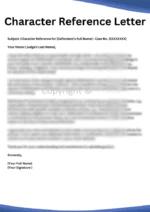






Reviews
There are no reviews yet.